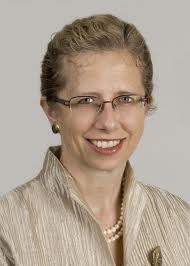PRESS RELEASE
 Rabat, September 7, 2012 – Morocco’s ongoing economic reforms and its commitment to better governance and inclusive growth have positioned the North African kingdom on a positive path, said Inger Andersen, World Bank Vice-President for the Middle East and North Africa (MENA), at a press conference concluding a two-day visit.
Rabat, September 7, 2012 – Morocco’s ongoing economic reforms and its commitment to better governance and inclusive growth have positioned the North African kingdom on a positive path, said Inger Andersen, World Bank Vice-President for the Middle East and North Africa (MENA), at a press conference concluding a two-day visit.
“Morocco has experienced a tremendous change that has paved the way for broader economic and social reforms,” saidAndersen. “My meetings with senior Moroccan officials and with civil society representatives have confirmed the determination of the Moroccan people to address the country’s most important challenges and the World Bank stands ready to support the country in its efforts.”
In her meeting with the Head of the Government, Abdelilah Benkirane, Andersen emphasized the Bank’s willingness to support ongoing reforms to strengthen social protection, competitiveness and governance, all with the aim of creating greater employment and wider participation in economic growth, particularly for youth and women.
“These cross-sectoral reforms are key for Morocco’s development,” said Andersen. “As we heard during the Arab revolutions, citizens across the region want the dignity of work, good governance and a voice in shaping their countries. Morocco’s new government is launching ambitious reforms in both the social and political arenas and this will require effective coordination across the government.”
At the request of government, improving social protection through the reform of the subsidy system tops the World Bank’s agenda in Morocco. Andersen emphasized that combating vulnerability through an efficient targeting system is key to ensure that the government’s support reaches the poorest and most needy citizens.
In a region where unemployment is at record levels, she also stressed the need to boost competitiveness and growth with the goal of generating jobs, especially for young Moroccans.
“Youth make up a significant proportion of Moroccan society and tackling the unemployment that plagues their young ambitions must be a priority for all of us,” said Andersen. She added that the World Bank is conducting analytical work and designing projects to support the participation of young people in Morocco’s economy and to ensure that their skills match labor-market demands. Equally important is a strong enabling environment for business development and to help Morocco achieve this, the Bank is working on a new initiative to underpin economic competitiveness.
In parallel to the opening up of several economies across MENA and the sharp focus on employment, the momentous events of 2011 have also driven governance and accountability to the center of the agenda. Here too the Bank, jointly with the European Union and the African Development Bank, is supporting Morocco’s governance reform efforts in the design of a Transparency and Accountability program for early 2013.
Governance was high on the agenda when Andersen met civil society representatives in consultative meetings focusing also on gender and youth unemployment. Among a number of participants, many outlined a stark picture of Morocco’s development challenges and urged the World Bank to continue to incorporate civil society recommendations into its policy advice in areas such as the country’s sharp regional disparities, inclusion of youth and women and economic growth.
During her visit, Andersen also met with Nizar Baraka, Minister of Economy and Finance, Najib Boulif, Minister Delegate for General Affairs and Governance, Fouad Douiri, Minister of Energy, Mining, Water and Environment and Mohand Laenser, Minister of Interior.
The World Bank provides Morocco with an average of US$650 million a year in support. This is in addition to the support it is providing to the second phase of the National Initiative for Human Development as well as the competitiveness, governance and social protection reforms. Bank projects also target sectors such as water and sanitation, agriculture (through the Plan Maroc Vert), energy, infrastructure, waste management and education.
Consultations for the next Country Partnership Strategy (CPS) 2014-2017 are expected to begin early next year. Andersentold government officials that she and her colleagues were looking forward to the new CPS as an opportunity to build consensus for reforms across multiple sectors and to coordinate on reform implementation.
.







